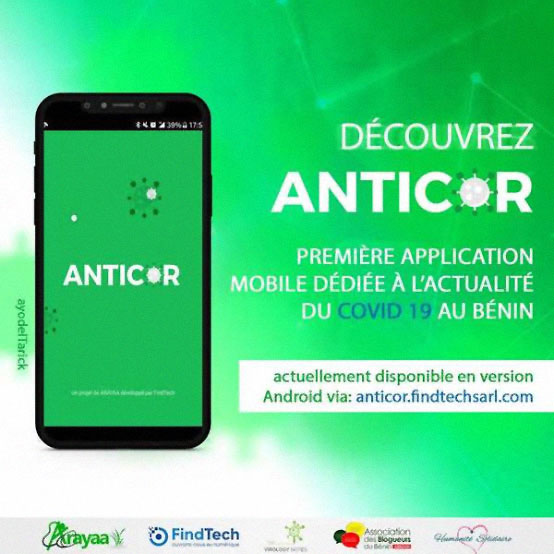Benin youth turn to technology to fight COVID-19
In Benin, young people are spearheading a new digital fight against the pandemic.
- 9 November 2021
- 3 min read
- by Victor Muisyo

Young people have been hit hardest by the socio-economic impacts of the COVID-19 pandemic, but are also at the frontline of the global response. In many countries they make up the majority of the health workers tackling COVID-19 head-on, staffing the labs that are researching exit routes to the pandemic, and leading on activism, innovation and communication.
In Benin young people are spearheading the use of digital technologies to fight COVID-19. Young innovators have taken up digital spaces, using social media and apps to advocate for vaccine take-up and spread accurate information.
Hashim Hounkpatin, a medical doctor, believes there are two diseases currently spreading around the world: COVID-19 and fake news. The vaccine that can help prevent both? Useful, accurate information.
“Digital technology presents us with a unique option to reduce the gap in terms of access to health services in Africa. We should innovate to provide reliable, Africa-specific information on COVID-19 in our local languages,” he says.
Hashim has launched a mass literacy programme in Francophone Africa called Arayaa. He has teamed up with a consortium of health-related content creators to organise a TweetChat calling on the local population to go for the vaccine and keep safe during the pandemic.
They created the hashtag #AgirContreCOVID19 which has reached more than 700,000 participants to date.

Hubert Gnonlonfoun, a law student at the University of Abomey-Calavi, has taken part in the TweetChat sessions and admits that it’s what drove him to get his first jab.
Have you read?
“I think this is a good initiative. People are lacking information because it is not easily accessible on the platforms they use every day like Twitter and Facebook. I am waiting for my second dose of AstraZeneca.”
Aside from the TweetChat sessions, the team has also designed an app that displays trusted knowledge in local languages and allows users to interact directly with experts for help.
The ANTICOR app, which is currently offline for updating and further tweaks, will tentatively be re-launched before 17 December and will be available for free download.
“When users interact with the app, it offers them a rapid test through a series of questions, which allows them to gauge their COVID-19 status, while suggesting the necessary actions like the nearest test and vaccination centres,” says Hashim.
Hashim and his team are not alone in this pursuit.
As one walks along Rue 362 in the country’s capital, Cotonou, a goat bleats and a taxi in archetypal yellow and green zooms past. Not far off is a building with crimson walls and violet, yellow and red awnings. It houses ‘Seme-City’, an innovation hub where young innovators are hard at work.
“We offer collaborations, training, support projects and a lot more, but our ultimate goal is to offer solutions to African problems through innovation,” says Claude Borna, General Manager of the hub.
In this hub, Donald Tchaou, 30, and five of his friends have developed X-Over, an app that encourages social distancing and makes it possible to trace chains of infection.
Follow Victor Muisyo on Twitter: @Muisyo_
More from Victor Muisyo
Recommended for you








